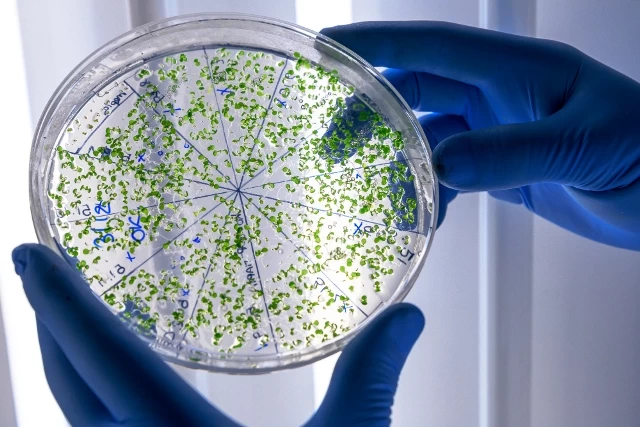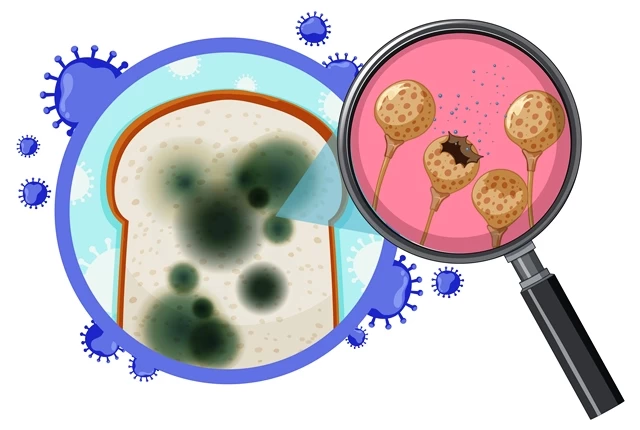
Recurrent Yeast Infections and Treatments
- Recurrent Yeast Infections and Treatments
- Causes
- Symptoms
- Negative Outcomes
- Treatment
- What Are Some Additional Recommendations?
- In Conclusion
Yeast infections are a common problem, particularly affecting women's health. Vaginal yeast infections, especially in their recurrent form, can significantly reduce the quality of life for women. Recurrent yeast infections can arise due to the interaction of many factors, and it is important to address them with accurate diagnosis and treatment methods. In this article, we will examine the causes, symptoms, and potential outcomes of recurrent yeast infections.
Causes
The causes of recurrent yeast infections are complex and are often associated with the interaction of multiple factors. Among the most common reasons are:
- Weak Immune System: A weak immune system reduces the body's resistance to yeast infections and increases the risk of recurrent infections.
- Antibiotic Use: Antibiotics can alter vaginal flora, leading to overgrowth of yeast, and consequently, recurrent yeast infections.
- Hormonal Changes: Hormonal changes such as pregnancy, menstrual cycles, and birth control methods can affect vaginal pH balance, predisposing to recurrent yeast infections.
- Stress: Chronic stress weakens the immune system, making it vulnerable to yeast infections.
- Diabetes: Diabetes increases the risk of yeast infections due to uncontrolled sugar levels in the body.
- Incorrect Hygiene Practices: Incorrect hygiene habits, such as excessive cleansing of the genital area or the use of perfumed products, can disrupt vaginal flora and contribute to recurrent yeast infections.
Symptoms
The symptoms of recurrent yeast infections are generally similar to those of a standard yeast infection. The most common symptoms include:
- Itching: Intense itching in the genital area is one of the most prominent symptoms.
- Pain or Burning: Pain or burning sensation during urination or sexual intercourse.
- Discharge: Thick, white, or slightly yellowish discharge.
- Redness and Swelling: Redness and swelling in the genital area.

Negative Outcomes
Recurrent yeast infections have both physical and emotional consequences. Symptoms such as physical discomfort and itching adversely affect daily activities and reduce the quality of life. Additionally, untreated recurrent infections can become chronic and lead to more serious complications, including the spread of vaginal infections, urinary tract infections, and skin infections.
Emotionally, recurrent yeast infections can be embarrassing and affect a person's self-confidence. Dealing with a constantly recurring health problem can negatively impact one's psychology and lead to conditions such as depression.
Treatment
First and foremost, it is crucial to regulate both intestinal and vaginal flora. For this purpose, probiotics should be used regularly for at least 3 months.
An elimination diet is recommended. Foods such as dairy products, alcohol, coffee, sugar, and flour should be eliminated from the diet to remove toxins and harmful bacteria from the body and correct the flora. Additionally, vitamin supplements are important.
Evaluation and treatment of insulin resistance are important.
To directly treat the flora and especially yeast colonies inside the vagina, intravaginal laser treatments have been effective in recent years. With the effect of laser heat, it not only directly kills the fungus but also increases collagen synthesis inside the vagina to regulate the flora. The laser procedure is painless and has no side effects. Treatment is administered in 3 sessions with a 3-4 week interval. In addition, to enhance the effectiveness of the laser and promote faster renewal of vaginal tissue, PRP or Sanakin can be added to the treatment.
What Are Some Additional Recommendations?
- Do not wash the inside of the vagina with soap or chemical-containing products.
- Wear cotton underwear.
- Adhere to hygiene conditions.
- Take supplements if vitamin or iron levels are low.
- Eliminate factors that cause chronic yeast infections.
In Conclusion
Recurrent yeast infections are a common problem that affects women's quality of life. However, with proper treatment and measures, this condition can be managed. Adopting proper hygiene habits, strengthening the immune system, avoiding stress, and adhering to the treatments recommended by the doctor can help reduce the risk of recurrent yeast infections. Additionally, with regular doctor check-ups and good health habits, the effects of recurrent yeast infections can be minimized, and a healthy life can be maintained.
Remember, if you have any concerns about vaginal infections, it is important to consult a gynecologist. Gynecologists can create a personalized treatment plan to ensure a healthy recovery.

Dr. Assist. Prof. Zehra Yılmaz
Obstetrician and Gynecologist





